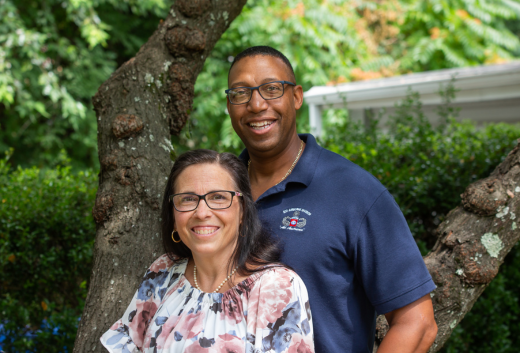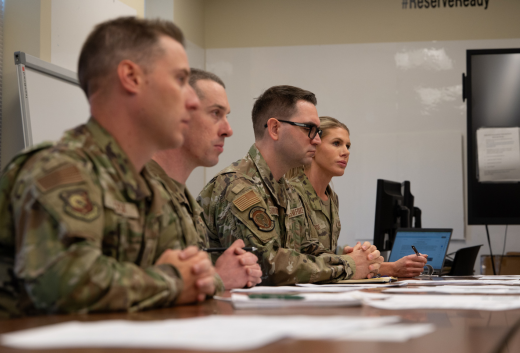By Amanda Huffman
Veteran & Military Spouse
After six years of suffering with certain military career-related challenges, I finally sought help. I started by participating in group therapy, before eventually turning to one-on-one therapy. The time in therapy gave me the knowledge and tools I needed to cope with my most pressing symptoms. In 2022, I filed my disability claim with the Department of Veteran Affairs (VA) and formally received a Post-Traumatic Stress Disorder (PTSD) diagnosis. This was validating recognition after years of struggle and therapy; I also began to receive compensation for the mental health challenges I experienced, both during my time in the military and long after — having separated from the military in 2013.
Today, I continue to live with PTSD and have several tools I use regularly to help me deal with the challenges that present themselves from the trauma I experienced. Some weeks, I forget I even have PTSD. Life is going smoothly, my mental state is in a healthy place and the world feels right. But then, seemingly out of nowhere, something changes and I notice the triggers that clue me in that something isn’t right in my mind, from weird dreams, feeling depressed, and struggling to get work completed to temper flare-ups or experiencing tension in my body. So, what can you do when triggers show up in your life? Here are some strategies.
3 Ways to Deal with PTSD Symptoms:
1. Recognize Triggers as a Warning Sign
Sometimes, it can feel easier to ignore the triggers, because it can be exhausting to deal with the trauma from deployment and military life experiences. But ignoring the first trigger just means another trigger will be around the corner. Instead of ignoring your mental health triggers, recognize them as a cue that you need to step back and address what’s really going on — because, more likely than not, they won’t go away on their own.
2. Meditate to Relieve Stress
When life starts to get crazy, remember how important mediation is. If you haven’t meditated before or haven’t done it in a while, make it a regular routine. When you’re experiencing something that triggers you, remind yourself to get back to focus on your mental health. One of the best things about meditation is you can’t do it wrong. Getting distracted while meditating is part of the practice of meditating and bringing yourself back to your focus point is how you train your mind through meditation.
3. Figure Out What’s Triggering You
Sometimes a TV show or tense life experience can throw off your mental health, without you immediately realizing it. When you start to feel triggered, make a point of looking back at what has happened in the last week or possibly month to see if there is something that has caused you to feel the way you do. Often, it’s easy to spot something that changed or to realize a show brought up a memory or feeling. If it’s something you can avoid, make a mental note to do so. You can also go back to meditation to think about the experience or show and see if you can determine exactly what was triggering you. If you can hone in on why something is triggering, it can help your mind move past it and find peace — or at least explanation.
How to Face Your PCS Challenges
Researching PTSD and reading the experiences of others like me who experience it is a great way to start recognizing that you may need help to solve the mental health challenges you face. If you’re struggling with your mental health, please do seek out help. Post-9/11 Veterans and their families can receive free mental health counseling from the Cohen Veterans Network. Also, look at the VA’s options for PTSD assistance that’s available to Veterans at your local hospital. To learn more, explore the VA’s available mental health services.
Keep in mind that getting help is just the first step in your journey. For years, I tried to get better on my own and faced setback after setback. It was only after I started to open up and share with others what I was experiencing that I began to find healing. It’s not easy to recognize your own mental health struggles or to seek out the help and support you need to face them, but it’s important that you do so — for yourself, as well as for your friends and family who care about you most.
Armed Forces Mutual Can Help
Worried that your PTSD could affect your ability to secure the financial resources you and your family may need in the years ahead? Your PTSD doesn’t have to keep you from getting life insurance. If you or a loved one is living with and managing PTSD under the care of a medical professional and have had difficulty getting life insurance coverage, contact us at 800-522-5221 to discuss coverage options that might be available to you from Armed Forces Mutual.
Need help managing your or a loved one’s PTSD? Please call the VA Veterans Crisis Line at 800-273-8255. Or dial 988 and press #1. Enrollment in VA benefits or healthcare is not required to receive assistance.





.webp)